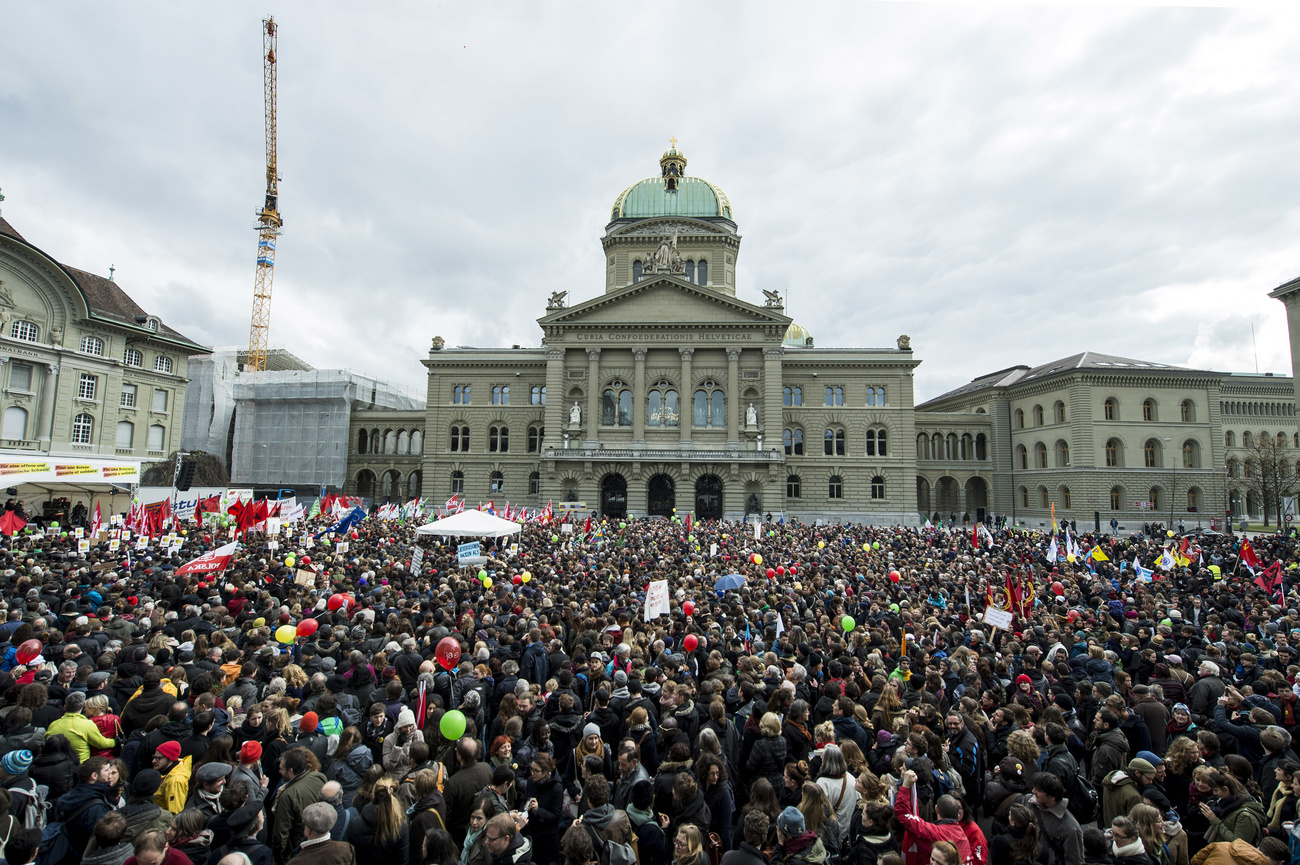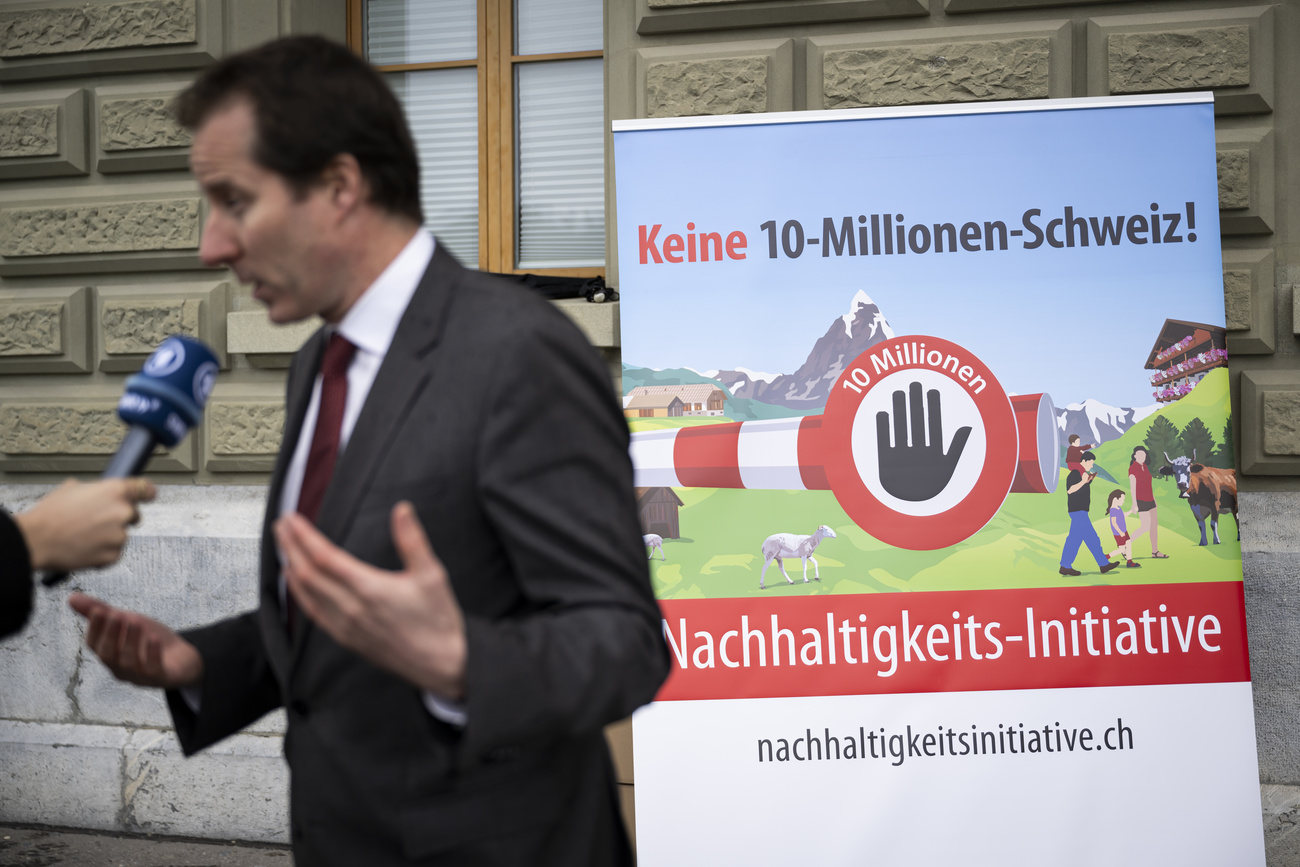
Immigration pressures force strategic re-think in Switzerland

Doubts are growing about immigration in Switzerland, as demonstrated by vocal interventions in politics and business.
“I have never seen immigration come under so much pressure from right to left,” political scientist Michael Hermann told Swiss public broadcaster SRF. “It seems as if no-one has a plan anymore.”
Do you want to read our weekly top stories? Subscribe here.
A rethinking process about immigration appears to be taking place across the board in Switzerland at the moment.
As the spearhead of the economy, the Swiss Business Federation Economiesuisse limited itself for years to emphasising the advantages of immigration as an indispensable prerequisite for prosperity. But this message is now apparently no longer absolute.
+ Surge of foreign workers meets Swiss industry demand
“We have to realise today that immigration has been too high on average in recent years.” That’s what Christoph Mäder, President of Economiesuisse, says. “We can no longer speak out against borderless immigration, but must respect that measures are needed.”
Swiss-EU negotiations
This also has an impact on the negotiations that the Federal Council is conducting with the European Union about a future bilateral path. “If the EU actually wants a new agreement with Switzerland, it must recognise that we have a particular challenge with the current proportion of foreigners in the permanent resident population.”
Mäder hopes that the Swiss negotiating team will succeed in defining some form of protective clauses in the area of immigration.
+ Swiss population swells to 9 million: a look behind the stats
Despite critical comments, Mäder emphasises the value of the free movement of people and bilateral agreements with the EU. Thanks to them, prosperity in Switzerland has increased. If Switzerland wants to secure prosperity, it will continue to rely on foreign workers due to demographic developments.
The Social Democrats have also been a guarantor of a strict bilateral course for years, but now parliamentarian Jacqueline Badran is also warning about the costs of unlimited immigration.
“The high level of immigration has its price, it has real costs. This has been talked about far too little up to now and is still being talked about far too little today,” says Badran. Cities will no longer be able to keep up with building schools and expanding infrastructure.
Multinational tax dumping
For Badran, however, the problem is not the free movement of people. She believes that the reason for the strong immigration in recent years is tax dumping.
+ Swiss voters rubuff right-wing attempt to curb immigration
“It is all of these headquarters of large international corporations that benefit from our low taxes and are bringing more and more employees into the country.” This subsequently leads to immigration, which causes the size of the foreign population to rise sharply.
Business circles contradict this view and claim that there is no relevant evidence that shows that these companies disproportionately fuel immigration.

More
Swiss right-wing party hands in initiative to limit immigration
Many people in the Swiss People’s Party do not support the free movement of people with the EU – but parliamentarian Diana Gutjahr does. She runs a metal construction company in Romanshorn with 80 employees. Most of them are Swiss, the rest are foreigners who live in Switzerland.
She tries, whenever possible, not to bring workers from abroad to Switzerland. Gutjahr also holds other entrepreneurs accountable. Instead of always taking the easiest route and quickly hiring someone who will then come with all their children, it would be better to rely on Swiss people or on foreigners who are already here.
In her opinion, the authorities also have the opportunity to restrict immigration. Representatives of sectors with acute labor shortages, such as healthcare or the catering industry, see things decidedly differently.
This news story has been written and carefully fact-checked by an external editorial team. At SWI swissinfo.ch we select the most relevant news for an international audience and use automatic translation tools such as DeepL to translate it into English. Providing you with automatically translated news gives us the time to write more in-depth articles.
If you want to know more about how we work, have a look here, and if you have feedback on this news story please write to english@swissinfo.ch.
Adapted from German by DeepL/mga

In compliance with the JTI standards
More: SWI swissinfo.ch certified by the Journalism Trust Initiative































You can find an overview of ongoing debates with our journalists here . Please join us!
If you want to start a conversation about a topic raised in this article or want to report factual errors, email us at english@swissinfo.ch.